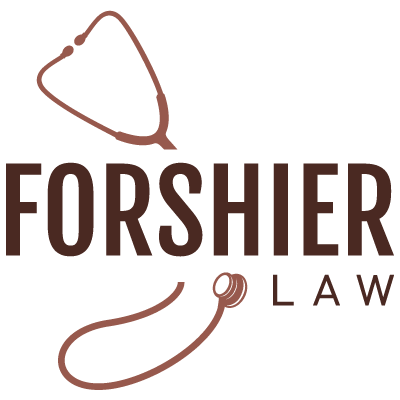As a long-term caregiver, you are a crucial part of the American healthcare industry. People across Minnesota rely on CNAs, personal care workers, nurses, and other care providers for their daily needs. However, an accusation of maltreatment or neglect can permanently end your career and it’s important to speak with a lawyer who defends these allegations.
If you have been disqualified from direct contact, take a deep breath, and don’t panic. You have options. Forshier Law, LLC focuses on defending and advocating for nurses and other healthcare professionals. Timing is crucial to any appeal so do not hesitate, call today.
What are Maltreatment and Neglect?
There are several ways an individual can be disqualified from direct care jobs. Some are disqualified because of criminal convictions, but others are disqualified because of the finding of neglect or maltreatment. If the Minnesota Department of Human Services finds that you have been engaged in serious or recurring neglect or maltreatment, you face seven years of disqualification. It’s important to understand how maltreatment and neglect are defined.
Maltreatment takes several different forms, including physical abuse, neglect, sexual abuse, and mental injury. At first glance, this is reasonable; no one should engage in these acts against a vulnerable person. However, the way that these terms are defined is extremely vague. The language used to define these terms could lead to innocent caretakers being barred from working in any state-licensed facility.
Additionally, there is gray area in defining maltreatment. Consider this: “abuse resulting in serious injury” covers everything from bruises and heat exhaustion to head injuries with loss of consciousness. Abuse, under the definition given by the state, can be unintentional. If an individual is hurt and the caretaker should have been reasonably able to prevent it, it is not considered accidental. It is considered abuse. For instance, if a resident falls the resultant injury may be considered neglect leading to serious charges and consequences. Often the healthcare worker is blamed when in reality, the incident is a result of an unforeseen or unavoidable accident.
If you dig deeper into neglect, the same issue stands. It is defined as a failure to provide the care required for an individual’s mental or physical health, protect an individual from conditions that endanger them, or provide necessary supervision. However, in many situations involving vulnerable individuals, what counts as “necessary supervision” only becomes clear in hindsight. The goal is to allow individuals to live as independently as possible, and in meeting this goal, caretakers may be accused of neglect.
Furthermore, findings of neglect occur even if no one is hurt. For example, someone who walks outside and steps into the street could be considered neglected. In group care settings, these situations often occur due to understaffing. This is the fault of the employer or the job market, not the care providers who are doing their best to meet the needs of their residents. However, the caretakers are the ones who may be found guilty of maltreatment.
Fighting to Have a Disqualification Overturned or Set Aside
Many people who receive disqualification notices do not fully understand the gravity of the situation or know that they have options available to them. Disqualification is a serious matter and will impact your license if you are a nurse or other healthcare provider. Furthermore, disqualification may prohibit you from working in many related fields. This puts an enormous economic strain on those who have spent their entire careers working as caretakers.
The first step is to request a reconsideration. If you can provide evidence that false information was used to disqualify you or demonstrate that the maltreatment/neglect was not severe or ongoing, you may be able to have the disqualification overturned. If your request for reconsideration does not go in your favor, you may request a fair hearing. These remedies have strict timelines that must be observed. A missed deadline may result in you losing your right to appeal the maltreatment determination.
You might also choose to ask for a set aside. If your disqualification is set aside, it indicates that you do not pose a risk of harm to the population you serve. It allows you to work in one specific location. The disqualification still stands, however, and this prevents you from changing jobs or changing the population you work with. Furthermore, determining whether or not a disqualification will be set aside can take months, during which time an individual may lose their job.
Forshier Law, LLC Can Help You Through This Challenging Time
Regardless of the circumstances that led you to this position, this is the time to act. You have a very short window to fight a disqualification, and you need skilled legal counsel to guide you through this process. Find out how Forshier Law, LLC can help. Our extensive knowledge of how medicine and law intersect make us an excellent resource for those facing disqualification. Call today or contact us online to discuss your case.
